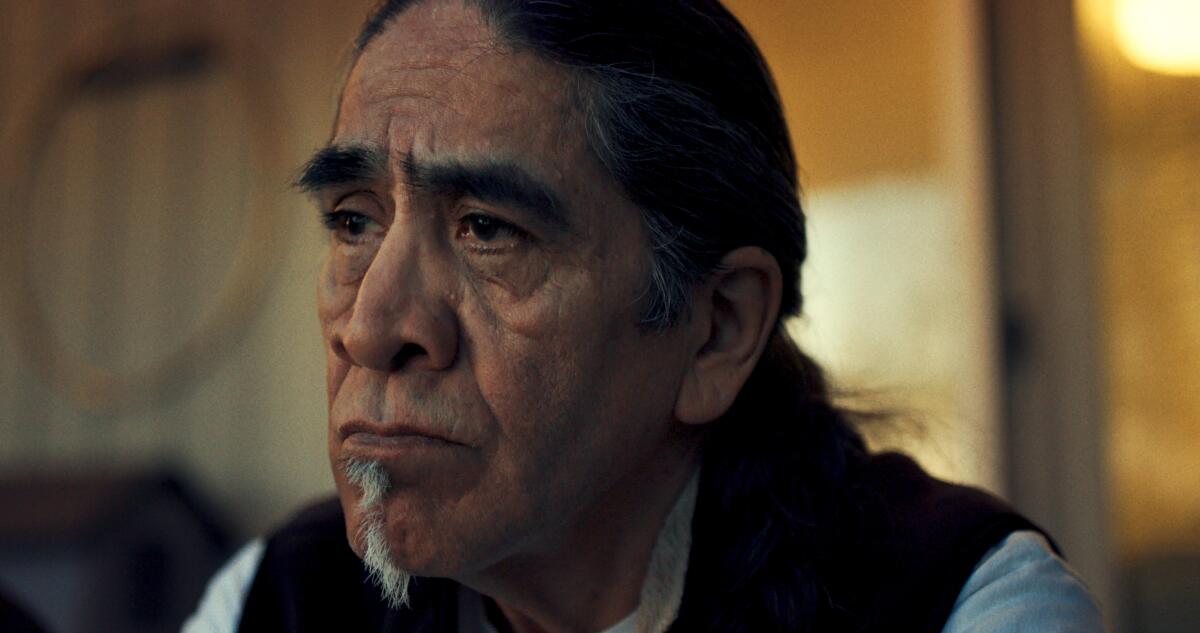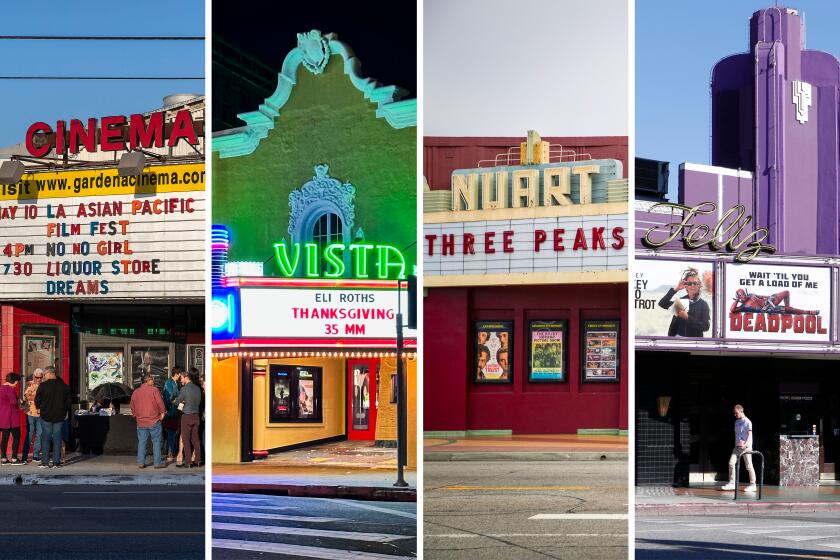‘Sugarcane’ unearths abuses of a Canadian school program meant for Indigenous children

- Share via
A dilapidated barn where trapped kids once scrawled messages like “73 days more.” An elderly survivor of a priest’s abuse pinpointing the day during her youth when she first turned toward alcohol. An abandoned baby becoming an abandoning father, whose son won’t allow three generations to suffer in isolation.
“Sugarcane” tells a story — many stories — happening everywhere in Canada, about what is being done, and still going unsaid, regarding the trauma inflicted on Indigenous people by the white-settled country’s residential school system. Begun in the 19th century under the racist notion that Indians were a “problem” to be solved, this network of educational institutions preached assimilation but created lasting misery, from the compulsory separation that shattered families to the untold abuse that marked children’s lives there.
The schools may be closed now — the last federally funded one shuttered in 1997 — but as filmmakers Julian Brave NoiseCat and Emily Kassie show with compassionate determination, shame and pain are still doing a lot of grim work on First Nations survivors and their descendants, even when their confronting their past occasionally yields answers. That reckoning takes many forms in the documentary’s carefully woven tapestry of lives on the Sugarcane Reserve in British Columbia, where, in 2021, the discovery of unmarked graves at St. Joseph’s, a Catholic Church-run residential school, makes headlines and sparks a vigorous investigation, spearheaded by its young chief Willie Sellars. Alongside the deployment of shovels, ground-penetrating radar and an evidence board of pictures, time lines and index cards, there’s a fresh attempt at healing in the community, through sacred rituals, gatherings and hard conversations.

This multipronged filmmaking approach, chronicling the painstaking work of a cold case while documenting what years of whispers and silence have wrought, is what gives “Sugarcane” its raw power. There’s also a palpable tension across time, especially how the haunted present day we’re witnessing belies the facade of normalcy in old class photos, official statements and the occasional glimpse of a black-and-white Canadian TV documentary from 1962 that put a smiling face on residential schools’ religious instruction.
Even the landscape speaks to an emotional duality. It captivates with its natural beauty and sweep at the same time it tragically underscores the remoteness of places like St. Joseph’s, where evil could keep secret. A more heartrending sense of majesty eventually rises, though, from what it takes for people to tell their tales, which involve cruelty, rape, disappearance, murder and suicide.
We’ve mapped out 27 of the best movie theaters in L.A., from the TCL Chinese and the New Beverly to the Alamo Drafthouse and which AMC reigns in Burbank.
We follow one survivor — stoic former Williams Lake chief Rick Gilbert, who remained a Christian — to Vatican City as part of a delegation getting a papal apology. Later during that trip, in a visit with a bishop, when the camera sits on his rugged face, a tear emerging as he haltingly speaks of his terrible childhood, you just might believe that, in that moment, he’s the strongest man in the world.
The road has been tougher for co-director NoiseCat’s father, Ed, a soft-spoken artist of sublime woodworking skill who’s long struggled with the reality of being abandoned as a baby. (A not-uncommon fate for unwanted newborns at St. Joseph’s was infanticide in a roaring incinerator.) A near-erasure that’s almost impossible to comprehend, its effect on the filmmaker’s family has been scarring. But as this deeply affecting depiction of inquiry and cultural resilience makes clear, to not talk about it is to give it power still.
'Sugarcane'
Rated: R, for some language
Running time: 1 hour, 47 minutes
Playing: At Laemmle Royal, West Los Angeles
More to Read
Only good movies
Get the Indie Focus newsletter, Mark Olsen's weekly guide to the world of cinema.
You may occasionally receive promotional content from the Los Angeles Times.











